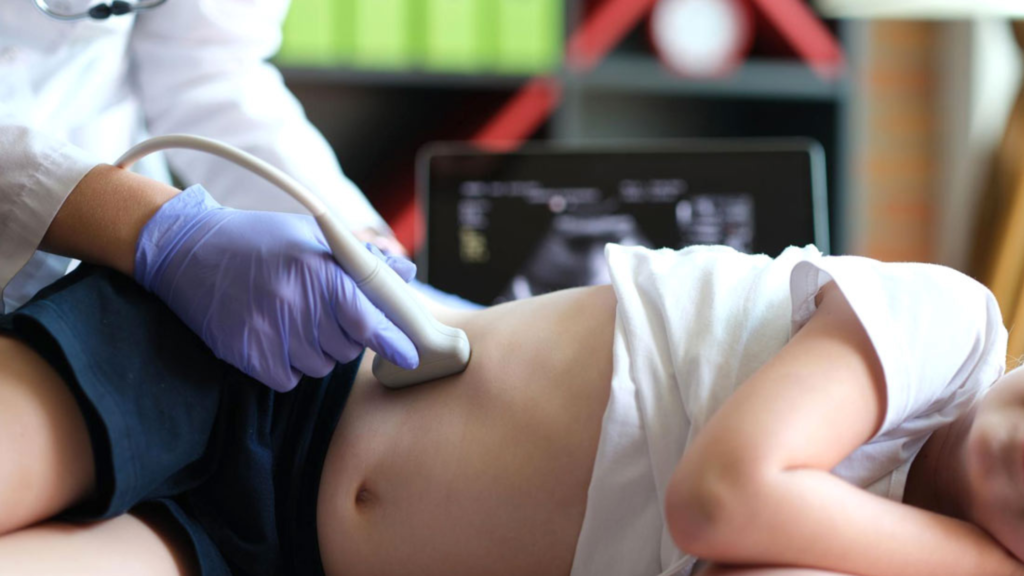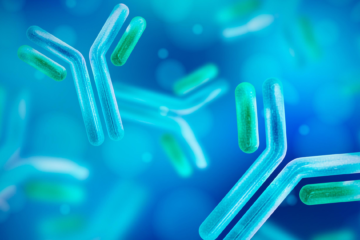
When we think of kidney disease, it’s often associated with the elderly or adults with pre-existing health conditions. However, it’s a misconception to believe that children are immune to this potentially life-altering condition. Kidney disease can affect kids too, and understanding its causes in the pediatric population is crucial for early detection, effective management, and improved long-term outcomes. In this blog, we will delve into the lesser-known realm of kidney disease in children, shedding light on the various underlying factors that can lead to this condition. From congenital conditions to acquired diseases, infections, and more, we’ll uncover the causes that every parent, caregiver, and healthcare provider should be aware of.
Understanding Kidney Function
Before delving into the causes of kidney disease in children, it’s essential to grasp the fundamental role of the kidneys in the human body. The kidneys are important in maintaining the body’s overall health and well-being. They are responsible for filtering waste and excess fluids from the blood, regulating blood pressure, producing essential hormones, and balancing electrolytes. Kidney function is critical to keeping the body’s internal environment stable and functioning optimally.
Types of Kidney Disease in Children
Kidney disease in children can manifest in various forms, including congenital conditions, acquired diseases, and secondary complications. Some of the common types of kidney disease in children include:
Congenital Kidney Diseases: These are present at birth and may result from genetic factors or developmental abnormalities. Examples include polycystic kidney disease, renal agenesis, and renal dysplasia.
Glomerular Diseases: These conditions affect the glomeruli, the tiny filtering units within the kidneys. Common glomerular diseases in children include nephrotic syndrome and glomerulonephritis.
Tubulointerstitial Diseases: These diseases primarily affect the renal tubules and the surrounding tissue. They include conditions like renal tubular acidosis and obstructive uropathy.
Hemolytic Uremic Syndrome (HUS): HUS is a rare but severe condition often triggered by certain bacterial infections, such as E. coli. It can lead to kidney failure in children.
Causes of Kidney Disease in Children
Family History: A family history of kidney disease can increase a child’s risk, as certain kidney conditions have a genetic component.
Congenital Abnormalities: Children born with congenital kidney abnormalities, such as polycystic kidney disease, may experience kidney dysfunction from an early age.
Urinary Tract Infections: Untreated or recurrent UTIs can lead to kidney infections and, subsequently, kidney damage.
Physical Injury: Trauma to the kidneys, such as a severe blow or accident, can result in kidney damage.
Medications and Toxins: Certain medications and toxins can harm the kidneys when not correctly dosed or administered, or if a child is exposed to harmful substances.
Dehydration: Prolonged dehydration can strain the kidneys, impairing their ability to function correctly.
Obstructive Uropathy: Blockages in the urinary tract, often due to structural abnormalities, can lead to kidney damage over time.
Systemic Diseases: Conditions like diabetes and hypertension, though more commonly seen in adults, can also affect children and lead to kidney problems if left unmanaged.
Wilms Tumour: This kidney tumour primarily affects children and requires prompt diagnosis and treatment to prevent kidney function decline.
Diagnosis and Treatment
Diagnosis and treatment of kidney disease in children require a multidisciplinary approach, involving healthcare professionals, diagnostic tests, and various treatment modalities tailored to the specific type and severity of the condition. Here, we’ll look into the detailed processes involved in the diagnosis and treatment of kidney disease in pediatric patients:
Diagnosis:
Medical History and Physical Examination
The diagnostic process typically begins with a thorough medical history and physical examination. Healthcare providers will inquire about the child’s symptoms, family history, and any pre-existing conditions.
Blood Tests
Blood tests, including serum creatinine and blood urea nitrogen (BUN), are used to assess kidney function. Elevated levels of these markers may indicate impaired kidney function.
Urine Analysis
Urinalysis is a critical diagnostic tool that can reveal abnormalities such as proteinuria (presence of excess protein in the urine), hematuria (blood in the urine), and signs of infection.
Imaging Studies
Imaging techniques, such as ultrasounds, computed tomography (CT) scans, or magnetic resonance imaging (MRI), are utilized to visualize the kidneys and identify structural abnormalities, cysts, tumours, or blockages.
Kidney Biopsy
In some cases, a kidney biopsy may be necessary to determine the specific cause and extent of kidney damage. A tiny sample of kidney tissue is extracted and examined under a microscope.
Genetic Testing
For congenital and genetic kidney diseases, genetic testing may be performed to identify specific mutations or abnormalities that contribute to the condition.
Other Specialized Tests
Depending on the suspected diagnosis, other tests such as 24-hour urine collection for protein measurement, renal scans, and kidney function tests may be used.
Treatment:
The treatment of kidney disease in children is individualized based on the type, severity, and underlying cause of the condition. Treatment may involve one or more of the following approaches:
Medications
Specific medications are prescribed to manage symptoms and address the underlying cause of the kidney disease. For instance, diuretics may be used to reduce oedema in nephrotic syndrome, while immunosuppressants may be employed in autoimmune glomerular diseases.
Dietary Changes
Children with kidney disease may require dietary modifications to manage their condition. This can involve limiting protein, phosphorus, or sodium intake to alleviate the workload on the kidneys and maintain electrolyte balance.
Dialysis
In severe cases of kidney disease, especially in end-stage renal disease (ESRD), children may need dialysis to perform the kidneys’ filtration function artificially. There are two main types of dialysis:
Kidney Transplant
When kidney disease is irreversible or progresses to ESRD, kidney transplantation is often the most effective long-term treatment. A suitable donor kidney, typically from a living or deceased donor, replaces the damaged kidney.
Treatment for Underlying Conditions
If kidney disease is a result of underlying conditions such as diabetes or hypertension, these primary conditions need to be managed to prevent further kidney damage.
Surgery
Surgical procedures may be required to correct structural abnormalities, remove tumours, or relieve obstructive uropathy.
Infection Management
If kidney disease is caused by infections, timely and appropriate antibiotic or antiviral treatment is crucial to control and eliminate the infection.
Symptomatic Treatment
Some children may require treatment to alleviate specific symptoms, such as pain management for kidney stone-related pain.
Ongoing Monitoring
Children with kidney disease require regular check-ups to monitor kidney function, adjust treatment as needed, and manage any complications that may arise.
It’s important to note that early diagnosis and prompt treatment are vital in managing kidney disease in children. Close collaboration between pediatric nephrologists, surgeons, dietitians, and other healthcare specialists is essential to provide comprehensive care and ensure the best possible outcomes for pediatric patients with kidney disease.
Preventing Kidney Disease in Children
While some causes of kidney disease in children are beyond anyone’s control, there are steps parents and caregivers can take to reduce the risk:
Promote Hydration: Encourage children to drink plenty of water and stay well-hydrated to support kidney function.
Timely Management of Infections: Promptly treating urinary tract infections and other infections can help prevent kidney damage.
Regular Checkups: Schedule routine checkups for your child, as early detection of kidney issues can lead to better outcomes.
Manage Chronic Conditions: If your child has conditions like diabetes or hypertension, work closely with healthcare providers to manage these conditions effectively.
Avoid Overuse of Medications: Follow medical advice on medication use and avoid overusing over-the-counter drugs.
Conclusion
Kidney diseases in children are as diverse as they are complex, spanning from congenital conditions and infections to genetic factors and acquired diseases. While the idea of children facing such a serious health concern may be disheartening, understanding these causes empowers parents, caregivers, and healthcare providers to detect and address kidney disease in its early stages, offering hope for effective treatment and improved quality of life.
By being vigilant and proactive in recognizing the signs, seeking medical attention when necessary, and taking preventative measures, we can reduce the burden of kidney disease in children. Through advances in medical science, diligent care, and support, we can work towards ensuring that every child has the best chance at growing up healthy and thriving, even in the face of this challenging condition.
Ultimately, knowledge and awareness are our greatest allies in the fight against kidney disease in children. By sharing this information, advocating for regular check-ups, and maintaining a healthy lifestyle, we can pave the way for a brighter, kidney-healthy future for our youngest generation.
Dr. Sumit Sharma is an experienced urologist, andrologist, and kidney transplant surgeon with over 20 years of clinical experience. He is the founder of the Department of Urology at multiple hospitals in Gurgaon and has established successful kidney transplant programs across the city.
With a commitment to the highest standards, Dr. Sumit Sharma ensures personalized, professional treatment, making your well-being the primary focus. Choose Dr. Sumit Sharma for outstanding Urological care in Gurgaon.



